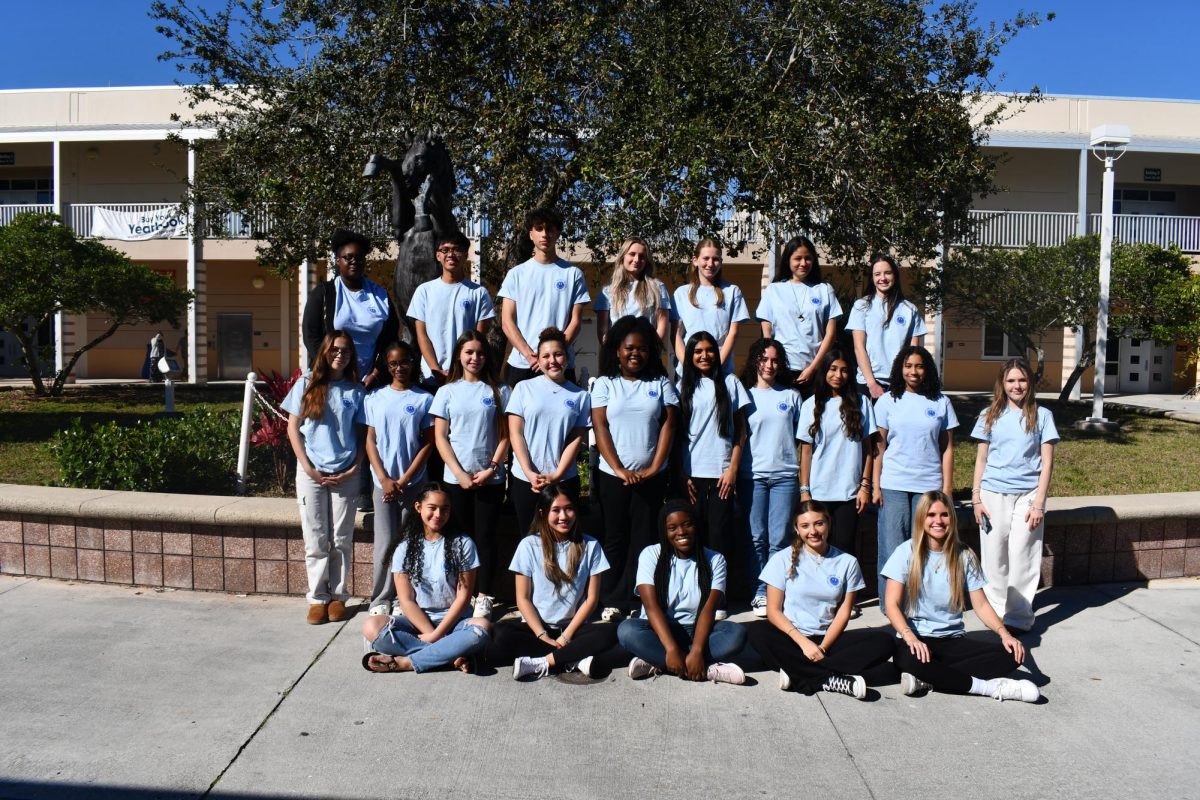Tiredness takes toll on teens
Photo courtesy of Brea Campbell
Studies show that teens struggle to get enough sleep during the school week.
November 17, 2022
It’s a Wednesday morning when you hear the alarm go off at 6:50 am. You wake up on top of the notes you were going over for the test you have second period. Now you rush to get ready for school in order to arrive on time for that 7:35 bell, and with a 20 minute commute, you wonder how you’re going to make it. This is what most students face every weekday morning.
“I would say I roughly get around six to seven hours because I stay up so late doing homework and studying,” explained junior Alina Negrin, “I don’t think I get enough sleep. I feel like kids used to get more sleep but because of the increase of pressure and workload, I feel like we aren’t getting enough.”
According to the Center for Disease Control, seven out of ten high school students nationwide do not get enough sleep. To put that into perspective, only 810 of our three thousand Broncos get an adequate amount of sleep. To put this in reverse, that means 2,190 of students don’t get the CDC recommended 8-10 hours of sleep per 24 hours.
Senior and color guard member Isaac Adams admitted that getting the required number of hours to stay healthy is difficult when you are juggling activities and school work.
“On average [I get] 4-6 hours of sleep,” Adams said. “I get home late from color guard practice and my nightly schedule gets pushed back once I’m done. After showering and eating, I can finally start my homework around 11, so that means I’m already getting less than 8 hours of sleep.”
This means that Adams is only getting half of what is recommended by the CDC. Four hours is not a lot of time no matter how you look at it. This is exceptionally low for someone who has to drive first thing in the morning. There are many students who are driving to school at 7 in the morning if not earlier due to our hectic traffic. No matter the length of your commute, driving while tired is dangerous.
But with such a short commute, is drowsy driving that dangerous? In a 2020 study by the National Highway Safety Administration, they found that 633 deaths were caused by drowsy driving. This is not only an early morning issue, but also in the afternoon. In a study by Nationwide Insurance, it was revealed that the majority of drowsy driving happens between 2:00 a.m. to 4:00 a.m. and 3:00 p.m. to 4:00 p.m. This just goes to show that your lack of sleep can affect your entire day.
Adams agreed with the finding. “Because when I wake up early in the morning I’m not really fit to drive,” Adams noted.
The most obvious way to prevent this is to get more sleep, so you don’t put yourself in danger. It is hard to get enough sleep when your internal clock is not on par with the time you have to be going to sleep to get 8-10 hours of sleep. During the adolescent years, teens experience a shift of about 2 hours in their internal clock. This means that before puberty children would get tired between 9:00 p.m. and 10:00 p.m. After puberty, they would experience drowsiness at around 11:00 p.m. and midnight. If a student wakes up at 6:00 a.m. for school, they will only receive 6-7 hours of sleep which is not enough. It is as if almost all odds are against teens receiving the perfect amount of sleep.
One thing to remember is that you don’t have to get those 8-10 hours through the night. This is recommended on a 24 hour basis. Meaning naps are just as good. So if your night schedule is allowing you to get only six hours of sleep you can take a 2 hour nap after school to reach that golden eight.
Sleep can make or break your day. If you don’t get enough of it, you have already started your day off on the wrong foot. It seems to be that almost all high school students are dealing with this whether it is due to your busy schedule of extra curricular activities, the job they have to go to after class, the mounds of assignments that have to be completed, or even a combination of all three.




